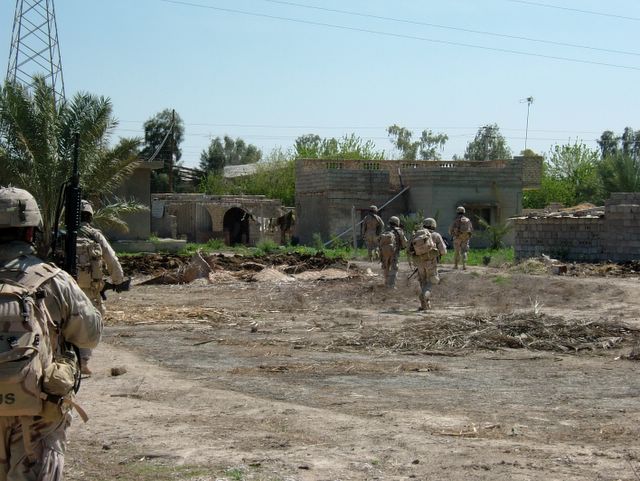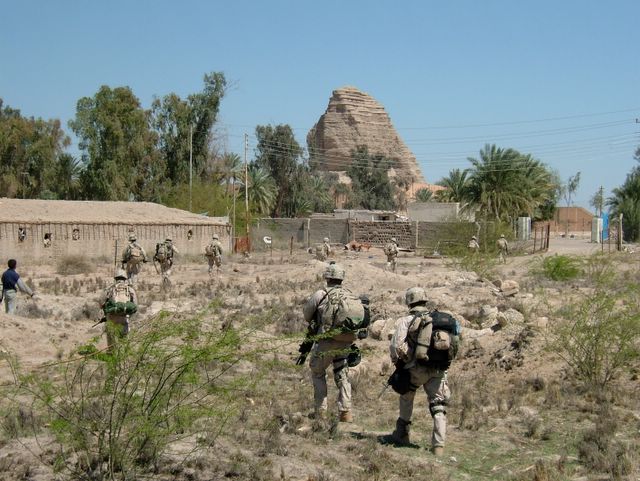Saving Soldiers' Jobs
Washington Post
August 4, 2007
Pg. 15
Saving Soldiers' Jobs
By Amy R. Gershkoff
For tens of thousands of members of the National Guard and reserves who are called up to serve in Iraq, returning home safely may be the beginning -- not the end -- of their worst nightmare. Reservists lucky enough to make it home often find their civilian jobs gone and face unsympathetic employers and a government that has restricted access to civilian job-loss reports rather than prosecuting offending employers.
The Uniformed Services Employment and Reemployment Rights Act (USERRA) protects members of the guard and reserves from job loss, demotion, loss of seniority and loss of benefits when they are called to active duty.
The act is supposed to protect reservists' civilian jobs for up to five years of military service. But the government has made it difficult for veterans to enforce their legal rights. Service members who return to find their civilian jobs gone also find that the burden is on them to prove that their jobs were taken away as a result of their military service and that there is no other reason that they could have been fired.
This onerous burden of proof discourages many from filing formal complaints.
Despite such bureaucratic hurdles, more than 16,000 reservist complaints were filed between 2004 and 2006, the Government Accountability Office said this year. But fewer than 30 percent of the reservists who experience USERRA violations file complaints, the GAO estimated.
Those who do file complaints with the Veterans Employment and Training Service Department (VETS) find that resolving their complaints, by the military's own admission, can take "months, if not years." A declassified Defense Department memo compiled for military lawyers stated: "Many VETS field investigators simply accept whatever the employer tells them in a response and close their files"
rather than continue an investigation, meaning the reservists never receive assistance. A 2005 GAO report found that the average time service members have to wait for USERRA complaints to be resolved is 619 days -- nearly two years.
Complaints that cannot be closed are referred to the Justice Department for prosecution, but few cases make it that far. In 2005, of the 5,302 complaints filed by reservists, 111 cases were referred to the Justice Department. Only 16 resulted in benefits going to reservists.
The Justice Department special counsel in charge of prosecuting veterans' job cases, Scott Bloch, declared before Congress in May 2005 that he had "zero tolerance for violations of USERRA" and would "enforce the law vigorously." He promised lawmakers that the Justice Department would do better.
It did -- barely. In 2006, the Justice Department received168 cases and found in favor of the service members 48 times. Resolving 48 cases is better than 16, but tens of thousands of veterans are still without jobs and without recourse.
If the Justice Department has failed to prosecute employers who act illegally, the Defense Department has taken unprecedented steps to keep reservists'
reemployment problems secret. According to the GAO, the Pentagon's annual Status of Forces Surveys provide the only accurate account of the number of reservists experiencing reemployment difficulties. These surveys ask reservists about their service, job loss and whether they are receiving the legal protections -- occupational and otherwise -- guaranteed to them under federal law.
Status of Forces Surveys used to be available to the public. But the 2005 and
2006 surveys of returning reservists and guardsmen were designated "for official use only," putting them off-limits to civilians, journalists or anyone else outside government curious about enforcement of USERRA.
The Defense Department has effectively made oversight of this issue impossible.
America deserves a full accounting of the sacrifices our soldiers have made on and off the battlefield. Most reservists are not wealthy; when the government fails to redress their grievances, the majority cannot afford to hire lawyers to prosecute their cases, particularly if they have lost their civilian jobs.
Thousands of the brave men and women lucky enough to return safely from Iraq are being left without jobs, without hope and without recourse.
The government has failed to protect these reservists and has covered up the evidence. It is time for Americans to protect those who protect us by demanding thorough oversight of the Uniformed Services Employment and Reemployment Rights Act.
The writer is director of analytics at MSHC Partners, a Washington consulting firm.












